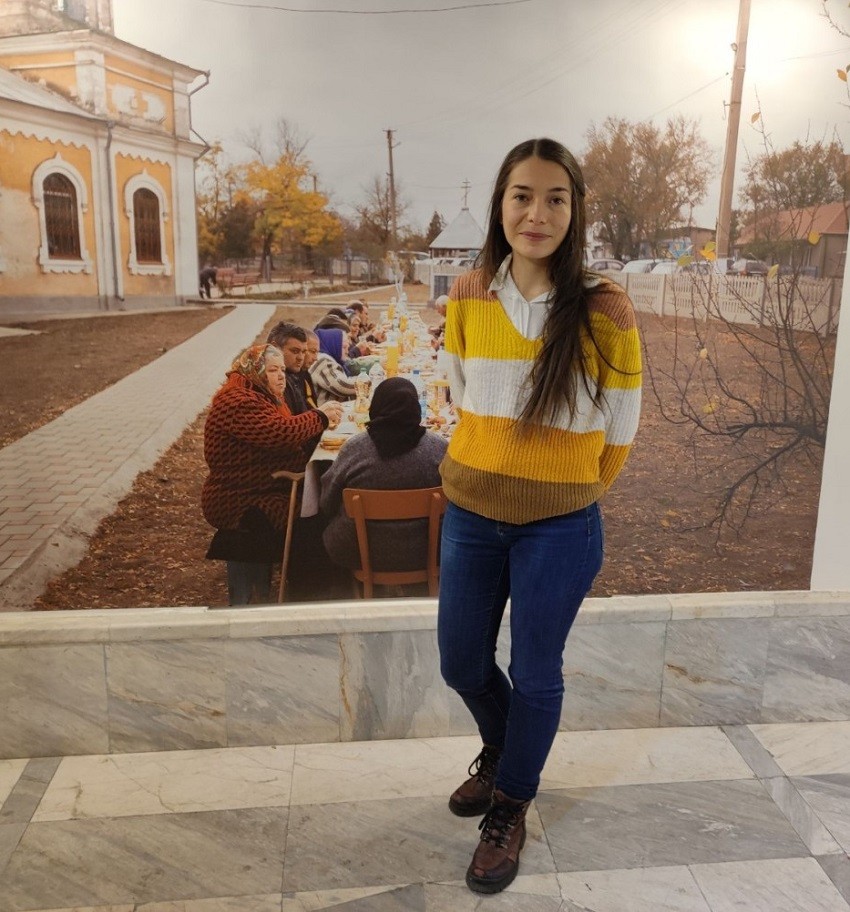More than 200 years ago, fleeing from the Ottoman invaders, thousands of Bulgarians left their homeland to settle in Bessarabia. Over the years, the territory where they resettled passed from the borders of Romania and Russia, then the USSR, and finally - to the borders of Moldova and Ukraine. All this time, their ethnicity seems to have remained intact, regardless of the country they are in today or the official language they are obliged to speak. This is the conclusion of the author of the "Root" project, Mihaela Aroyo, who has captured the history of the Bessarabian Bulgarians in photographs.

The idea was born spontaneously when, in 2019, Mihaela visited an annual youth assembly of Bessarabian Bulgarians in the Moldovan village of Stoianovca.
"This was my first contact with Bessarabian Bulgarians, and I was very impressed when I saw the way they welcomed us there, how they preserve their culture, their language”, says Mihaela Aroyo. “I felt a purely personal, internal need to continue meeting these people, communicating with them and photographing them. Over time, this deepened its meaning and I hope it will become a kind of bridge between us, the Bulgarians in Bulgaria and the Bulgarians in Bessarabia, Moldova and Ukraine. Let's get to know each other better, communicate and create useful connections."

During her meetings with the Bessarabian Bulgarians, Mihaela realizes that they, especially the older ones, live with an idealized image of Bulgaria, similar to a dream, which they cannot touch. At the same time, they have accepted their fate as settlers who feel it their duty to support the diaspora in the place where they live. This effort of theirs to preserve the Bulgarian roots is also supported by Bulgaria via various programs. This is also the case with the project "Root", which is implemented with the support of the National Culture Fund:
"For me, this story can serve not only as a symbol at the local level, not only to connect Bulgarians who live in different territories from Bulgaria”,Mihaela Aroyo points out. “For me, this community has a more global meaning, because many different nationalities live in Bessarabia - Bulgarians, Moldovans, Russians, Ukrainians, Gagauz, Albanians. All these people in this multi-ethnic region live in peace with each other. They even consider it an advantage that at the age of three or four they learn four languages."

Mihaela Aroyo herself is a descendant of immigrants from Spain on her father's side, which is probably why the fate of the Bessarabian Bulgarians touches her deeply. When she asks them several times how the war affects them now, how they perceive Russian culture before and after it began, they give an eloquent answer related to their sense of identity:
"What is characteristic of this region is that people are used to the state structure always changing," explains Mihaela. „For example, a person who lived between the two world wars studied first in the Romanian language, then when the territory became part of the USSR, the Russian language penetrated the school system, and after the collapse of the Soviet Union and the separation of the republics, new countries were created - Ukraine and Moldova, with a new language. It may sound strange from the outside, but the people seem to be used to these constant changes. Therefore, their efforts are focused on preserving themselves as a community, settlement, village or city. Even sometimes, when I have thought about it, I come to the conclusion that it is precisely these constant changes that have perhaps contributed to the preservation of their identity, because it is the most secure thing they have there."
The Vladigerov brothers will provide a live musical accompaniment to a silent film at Vienna’s Metro Kulturhaus cinema , marking their second time taking on the challenge. The historic Metro Kino has been run by the Austrian Film Archive since 2002,..
The film “Made in EU” by director Stefan Komandarev won the Audience Grand Prize at the 63rd Gijón International Film Festival in Spain. The film triumphed in competition with 95 titles, BTA has reported. “Within a few days, we..
The seventeenth annual celebration of young wine in Plovdiv was officially opened on 21 November. The wine marathon, which will continue throughout the weekend, promises an unforgettable culinary and cultural journey through the authentic..
The Vladigerov brothers will provide a live musical accompaniment to a silent film at Vienna’s Metro Kulturhaus cinema , marking their second time taking..
The film “Made in EU” by director Stefan Komandarev won the Audience Grand Prize at the 63rd Gijón International Film Festival in..

+359 2 9336 661
